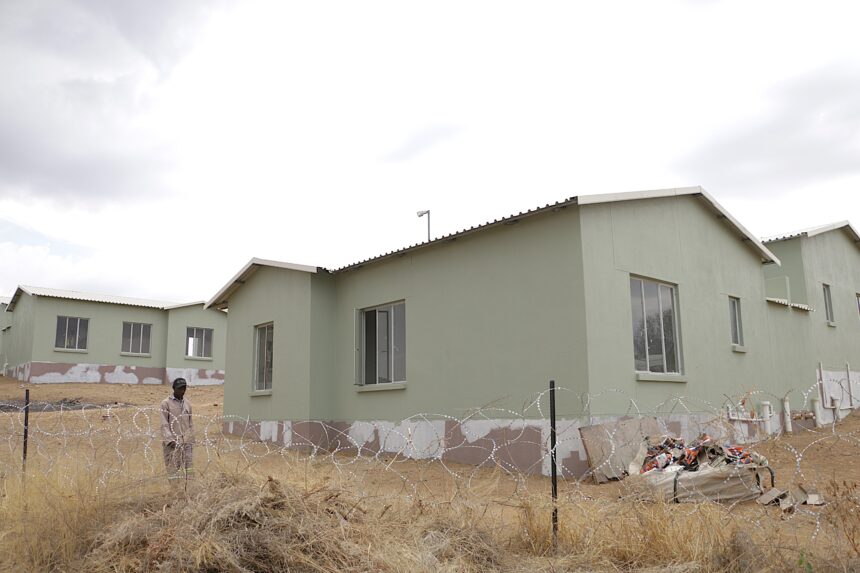The low supply of rental properties in Windhoek is wreaking havoc on the local property market.
The low supply is exacerbated by slow land delivery for new residential units, the exorbitant cost of living, and an influx of new inhabitants.
A seasoned estate agent said the situation is driving some Windhoek residents to temporarily opt for more unaffordable options, such as Airbnb, while they seek a more permanent solution.
The rules of basic economics dictate that low supply, coupled with high demand, drives up the cost of an item.
Rental accommodation is no exception, as some unscrupulous Windhoek landlords scramble to cash in on the state of affairs by increasing their rent beyond inflation, and some even more than the traditionally-accepted 10%.
“Currently, it is extremely difficult for many Namibians to find a decent and affordable rental property in Windhoek. The rent prices out there are exceptionally high. Many people already renting don’t have any other option but to accept inflated increases, just to secure a roof over their heads,” an estate agent said.
Preferring anonymity, the estate agent noted that some landlords are sticking to an inflationary increase to minimise the risk of payment defaults, which are quite common in the rental sphere.
This chaotic state of affairs in Windhoek’s rental market has come to the fore because of the much-anticipated Rent Control Bill.
It has been under review by the urban and rural development ministry since 2017.
The proposed legislation aims to regulate rental fees and increases in the country.
Currently, rental fees and increases remain unregulated as Windhoek welcomes new inhabitants linked to the surging influx of expats working in oil and gas and related industries.
A senior official in the ministry recently said the Rent Control Bill still needs input from relevant stakeholders, such as property owners and commercial banks.
While the ministry drags its feet on the rent control legislation, Windhoek residents continue to suffer the consequences.
Analysts have noticed a trend of individuals delaying property purchases in a high-interest rate environment in favour of prolonged renting.
This is poised to sustain the rental market’s growth momentum in the foreseeable future.
“Finding a suitable place to rent in Windhoek has become increasingly challenging due to the surging rent prices. It’s now difficult for individuals to secure a reasonably-priced place to live.
Many worn-out apartments are being rented for as much as N$4 500 per month, excluding water and electricity, with no parking space for vehicle owners, and often no hot water. When a decent place is found, the rent can skyrocket to N$8 000 and above, also excluding water and electricity. This situation forces many residents to rent smaller places just to afford to live in Windhoek,” said Windhoek resident Dawio Visagie.
A young professional working in Windhoek said “accommodation is difficult to find in Windhoek because many people are scamming others on Facebook, where many individuals search for accommodation.
This makes it challenging to trust potential landlords or agents. The cost of living in Windhoek is high. A decent place with water and electricity costs between N$4 500 and N$5 000 per month, which is a big expense for a single person.”
Towards the end of 2024, the FNB Rent Price Index reported a continuation of the upward trend in rental prices.
After moving out of a contractionary period from March 2023, the Rental Index reached a 12-month average of 7.2% in Q4-2023.
This was the highest growth observed in the domestic rental market since 7.7% during the previous year.
At the end of 2024, the average rent price on a 12-month rolling basis stood at N$7 257.
When considering bedroom size, the three-bedroom segment recorded the highest growth at 19.1%.
The one-, two- and more than three-bedroom segments recorded muted growth of 0.6%, -0.3% and 0.0%, respectively.
“We note that deposit growth has remained in double-digit territory since June 2023, which suggests that landlords are in a better position to charge higher deposits due to increased demand.
We maintain our view that the dynamics in the rental market are not in line with what would be expected in a high-price and elevated interest rate environment, which would weigh on affordability,” stated FNB market research manager Mandisa van Wyk at the time.
“We continue to monitor potential impacts from adjustments in the loan-to-value ratios, which became effective on 31 October 2023. This might incentivise investments in residential property, thereby increasing the supply of rental property. Also, the arrival of expats for oil and gas exploration activities could potentially be impacting the rental market,” the FNB Index stated.



